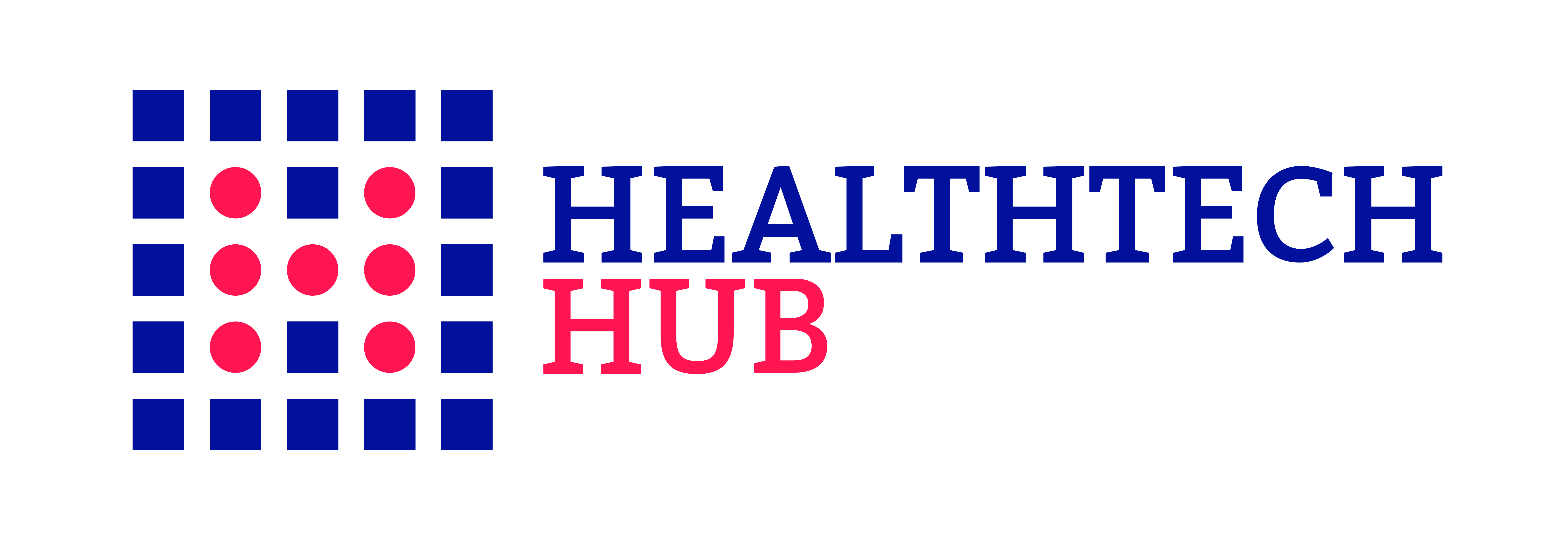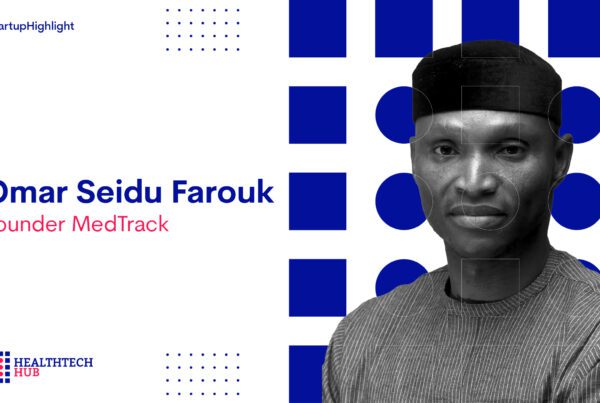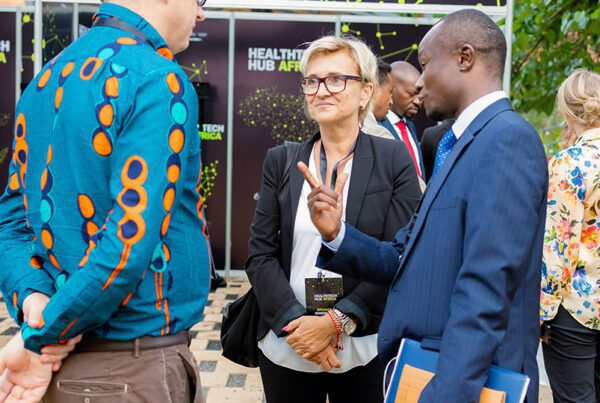Why Collaboration between Government and Healthtech Startups is Essential in Africa
Healthcare is a critical sector in any society, and the government needs to prioritize it. However, in Africa, the healthcare sector has been plagued with numerous challenges, including inadequate infrastructure, a shortage of medical personnel, and limited resources.

Fortunately, health-tech startups are emerging as game-changers in the healthcare sector by leveraging technology to provide innovative solutions to these challenges. While health-tech startups have the potential to revolutionize the healthcare sector, the collaboration between the government and these startups is essential.
This article explores why collaboration between government and health-tech startups is essential in Africa.
Improved Healthcare Access
In Africa, access to healthcare services is a significant challenge, particularly in rural areas. However, health-tech startups leverage technology to provide innovative solutions that improve healthcare access. For example, telemedicine platforms allow patients in remote areas to access medical consultations with doctors without travelling long distances. This improves healthcare access and ultimately leads to better patient outcomes. However, for telemedicine platforms to be successful, the government must provide the necessary infrastructure, such as high-speed internet connectivity. Therefore, a collaboration between the government and health-tech startups is essential to improve healthcare access in Africa.
Cost Reduction
One of the significant challenges in the healthcare sector in Africa is the high cost of medical services. Healthtech startups can provide innovative solutions that reduce the cost of healthcare. For example, mobile health applications can monitor patient health, reducing the need for frequent hospital visits. This ultimately reduces the cost of healthcare services for patients. Additionally, health-tech startups can provide innovative solutions that reduce the cost of medical equipment and supplies. However, for these solutions to be successful, the government must provide an enabling environment, such as tax incentives and regulatory frameworks. Therefore, a collaboration between the government and health-tech startups is essential to reduce the cost of healthcare in Africa.
Improved Data Collection and Management

Data collection and management are critical for effective healthcare delivery in the healthcare sector. However, data collection and management in Africa are often inadequate, leading to inaccurate information for effective healthcare delivery. Healthtech startups can provide innovative solutions that improve data collection and management, improving healthcare delivery.
For example, electronic health record systems can store patient data, making accessing patient information easier for healthcare providers. Additionally, data analytics can identify trends and patterns in patient data, leading to more effective healthcare delivery. However, for these solutions to be successful, the government must provide an enabling environment, such as data privacy and security regulations. Therefore, the collaboration between the government and health-tech startups is essential to improve African data collection and management.
Capacity Building
There is a shortage of medical personnel in Africa, particularly in rural areas. Healthtech startups can provide innovative solutions that improve the capacity of medical personnel. For example, e-learning platforms can be used to provide medical training to healthcare professionals, improving their knowledge and skills. Additionally, mobile health applications can provide healthcare education to patients, improving their understanding of healthcare issues. However, for these solutions to be successful, the government must provide an enabling environment, such as regulatory frameworks for medical training. Therefore, the collaboration between the government and health-tech startups is essential to improve capacity building in Africa.
Job Creation
In Africa, unemployment is a significant challenge, particularly among young people. Healthtech startups can provide innovative solutions that create employment opportunities, particularly in the tech sector. For example, health-tech startups can create job opportunities for software developers, data analysts, and customer support personnel. Additionally, health-tech startups can provide opportunities for entrepreneurs to establish businesses that provide healthcare services. However, for these solutions to be successful, the government must provide an enabling environment, such as tax incentives and regulatory frameworks. Therefore, the collaboration between the government and health-tech startups is essential.
Policy Development
Collaboration between the government and health-tech startups can also lead to developing policies supporting health-tech innovation. Healthtech startups operate in a rapidly evolving environment, and regulations and policies can lag behind the pace of innovation. Therefore, the collaboration between the government and health-tech startups can ensure that policies are updated to reflect the latest developments in health-tech. The government can work with healtht-ech startups to identify areas where policy development is required, and healthtech startups can provide input into developing policies that support innovation and growth.
Data Collection and Management
Data collection and management are critical to the success of health-tech startups. Healthtech solutions often rely on collecting and analyzing large amounts of data, and the accuracy and completeness of this data are essential. Collaboration between the government and health-tech startups can improve data collection and management by developing data standards and protocols that ensure the quality and consistency of data. The government can also provide access to data sources such as electronic health records, which can be used to develop innovative health-tech solutions.
Regulatory Support
In Africa, the regulatory environment for health-tech startups can be challenging, particularly for startups that provide medical devices or pharmaceutical products. The government has an essential role in ensuring that health-tech startups comply with regulatory requirements to ensure the safety and efficacy of their products. Therefore, the collaboration between the government and health-tech startups is essential to provide regulatory support to startups. The government can guide regulatory requirements and streamline the regulatory process, making it easier for startups to comply with regulatory requirements.
Access to Funding
Access to funding is a significant challenge for health-tech startups in Africa. Many startups struggle to secure funding to develop and scale their products. The government can play a crucial role in funding health-tech startups. For example, the government can establish funding programs specifically for health-tech startups, providing grants or low-interest loans to startups. Additionally, the government can provide tax incentives to investors who invest in health-tech startups. Therefore, the collaboration between the government and health-tech startups is essential to provide access to funding for health-tech startups in Africa.
Fostering Innovation
Collaboration between the government and health-tech startups can foster a culture of innovation in Africa. The government can encourage entrepreneurs to take risks, experiment with new ideas, and develop cutting-edge technologies by providing support and resources to startups. This can lead to the creation of new products and services that can potentially transform the healthcare industry in Africa and beyond.

Improving Healthcare Delivery
Collaboration between the government and health-tech startups can help improve healthcare service delivery in Africa. By leveraging technology, startups can help to streamline processes, reduce costs, and improve patient outcomes. For example, startups can use data analytics to identify areas of need, develop targeted interventions, and track progress over time.
Addressing Healthcare Challenges
Africa faces several healthcare challenges, including high rates of infectious diseases, limited access to healthcare services in rural areas, and a shortage of healthcare professionals. Healthtech startups can work with the government to develop innovative solutions that address these challenges, such as telemedicine platforms, mobile health applications, and medical supply chain management systems.
Promoting Economic Growth
Collaboration between the government and health-tech startups can stimulate economic growth in Africa. By creating a supportive environment for startups to grow and develop, the government can help to increase job creation, attract investment, and drive innovation. Healthtech startups can also contribute to the local economy by providing affordable healthcare solutions, leading to improved productivity and increased economic activity.
Conclusion
In conclusion, the collaboration between the government and health-tech startups is essential in Africa to address the numerous challenges in the healthcare sector. Healthtech startups have the potential to revolutionize the healthcare sector by providing innovative solutions to healthcare challenges. However, for these solutions to be successful, the government must provide an enabling environment that supports health-tech startups. Collaboration between the government and health-tech startups can improve healthcare access, reduce the cost of healthcare, improve data collection and management, improve capacity building, create job opportunities, provide regulatory support, and provide access to funding. Therefore, governments in Africa must prioritize collaboration with health-tech startups to improve the healthcare sector in Africa.





